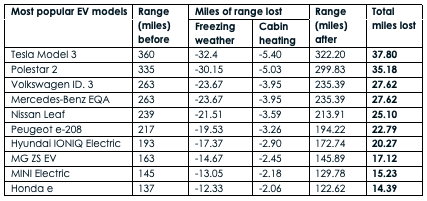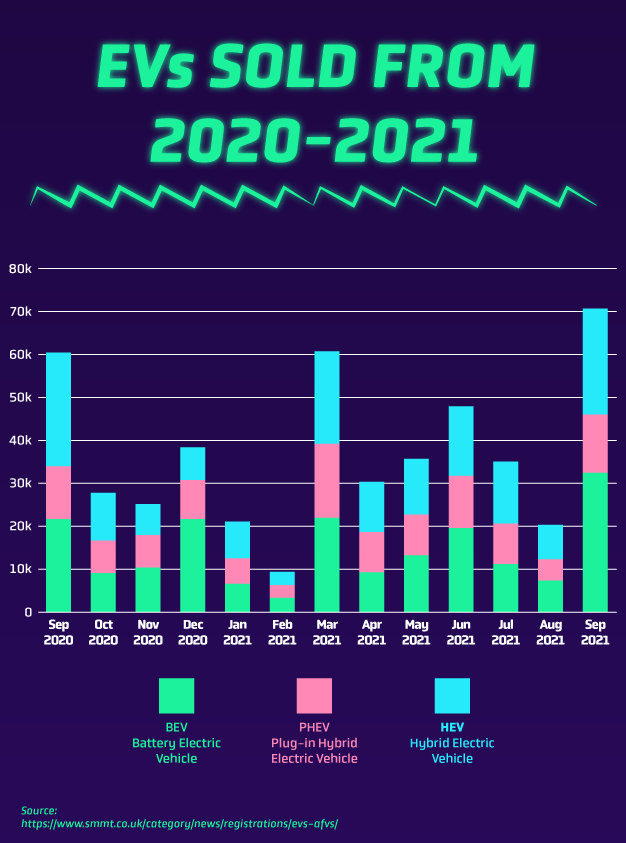Freezing temperatures could see EV motorists lose more than 30 miles of range this winter
Freezing weather and increased cabin heating could see some of the UK’s most popular EV models lose more than 30 miles of range this winter.
The data from Macklin Motors finds that a cold snap could cause an EV to lose up to nine per cent of its range overnight, due to the intense energy usage required to power through the freeze.

Cabin heating is another major issue for EV motorists, with 1.5 per cent of range being lost this way.
Together, the effects of freezing overnight weather and in-vehicle heating could incur more than 30 miles of lost range – and that’s all before it leaves the driveway.
Although Tesla’s Model 3 greatest range losses are to be expected, considering it also has the greatest amount of range to begin with.
The Honda e, on the other hand, has just 122.62 miles left on it after sitting in freezing weather overnight and being heated up (just enough to get it from London to Leicester one-way).
Other areas that energy losses can easily occur in an EV include using old or worn tyres, accelerating frequently, charging the battery, and parking up.

While charging the battery and parking up are unavoidable, there are still ways to mitigate the losses on an EV’s range.
For instance, rapid charging points can come in handy when out and about, although they can be expensive.
You could also save precious miles by parking in a garage (at home) or a multi-storey car park (when you’re out). “These indoor areas typically have a more stable ambient temperature than road parking, for instance, which helps to prevent energy loss.”
But the most crucial – and perhaps the simplest – top tip? Aim to have your EV charged at around 50-80% when parked.
“Lithium-ion batteries (the battery pack used in most modern EVs) lose energy when they are charged 100% and parked up. Leaving 100% charged batteries for long stretches of time could even cause long-term battery damage.”

